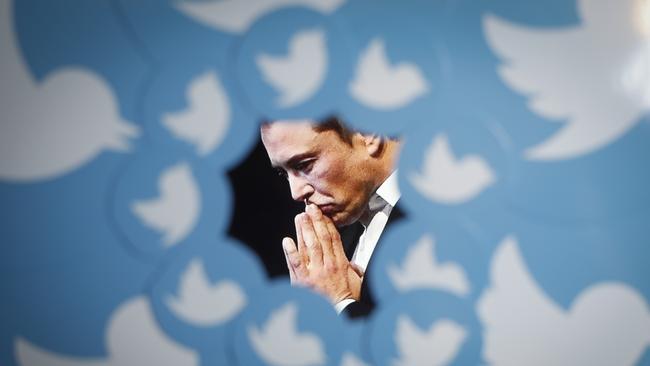Advertisers share doubt over Twitter since Elon Musk’s takeover
Elon Musk’s ‘mercurial nature’ and ‘erratic product updates’ has put Twitter advertising in doubt for many businesses, a new report has found.
Elon Musk’s “mercurial nature” and “erratic product updates” has put Twitter advertising in doubt for many businesses, investment company GroupM says.
The findings of a report published by GroupM on Tuesday – tracking 62 markets – cites concerns about the tech giant and notes businesses had been deterred by upheaval at the company now run by the Tesla boss.
“Twitter, too, remains an open question for many marketers because of the erratic product updates at the company and mercurial nature of new owner Elon Musk, who told staffers that bankruptcy is a possibility,” the report says. “Despite its outsized role in certain news, political and media spheres, the platform represented just 1.2 per cent of all global digital ad revenue ex-China.”
Twitter has been mired in controversy since Mr Musk acquired it for $US44bn ($64bn) in October. Its appeal to advertisers has also remained subdued.
“Its size means Twitter is not a must-buy for the majority of advertisers and, while any spend coming out of the platform in the last three months of this year may not be reinvested due to macroeconomic concerns, TikTok, Reddit, Pinterest and others may benefit in 2023 as long as scale and product offerings ramp up to support advertiser needs,” the report from GroupM, which owns a number of advertising businesses and is controlled by British multinational WPP, notes.

GroupM’s chief Australia and New Zealand investment officer, Seb Rennie, said advertisers were looking “certainty around the environment they are advertising in”. “Most advertisers want to have some surety around brand safety and that’s a consistent conversation that we have with all of our global social media platforms,” Mr Rennie said. “We expect there will be growth in the social media ecosystem.”
The report has forecast global advertising to grow by 5.9 per cent next year and also expects improvements in areas including connected TV and retail media.
This forecast is below the International Monetary Fund’s expectation that global inflation will fall to 6.5 per cent, excluding political advertising.
Mr Rennie said there was “some cautious optimism” and businesses being created. “Whilst large advertisers are cautious globally, we are seeing them recording record revenue gains,” he said.
The report says that, in Australia, total advertising market growth is expected to be 3.4 per cent next year, while total market growth for 2022 will be 10.9 per cent and reach $14.5bn.
“We are facing similar economic headwinds to the rest of the world. Inflation remains an issue that the Reserve Bank needs to continue to monitor,” Mr Rennie said. “The fragility around the uncertainty of the market is going to continue to flow through to the advertising market.”
The TV market’s predicted 2022 advertising growth of 4.8 per cent year on year has been scaled back to 3.7 per cent. The findings also showed advertising for linear TV will continue to decline, but there will be growth in video-on-demand services.
Audio advertising is expected to grow by 3.8 per cent this year, excluding political content, but its growth will be subdued next year and is forecast at 1.3 per cent.
Print media is also looking for ways to improve advertising, including diversifying revenue streams such as “podcasts, affiliate programs and improved audience-matching capabilities”.






To join the conversation, please log in. Don't have an account? Register
Join the conversation, you are commenting as Logout